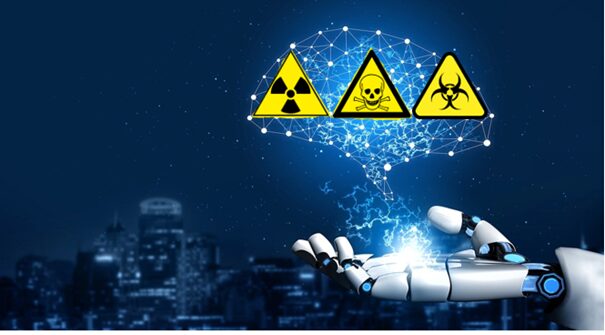The fast and the deadly: When Artificial Intelligence meets Weapons of Mass Destruction
Artificial intelligence will have a significant impact on the development, manufacturing and control of weapons of mass destruction. It is therefore prudent to slow down the integration of AI into the field of biological, chemical and nuclear weapons, before the associated risks are not fully understood.
Friday, 28 June 2024
08:00 – 09:20
Registration (Europasaal, Federal Foreign Office)
09:20 – 09:45
Opening address
AI: A new dimension of threats from weapons of mass destruction?
Günter Sautter, Director-General for International Order, the United Nations and Arms Control of the Federal Foreign Office, Berlin
Keynote address
H.E. Fernando Arias, Director-General, Organisation for the Prohibition of Chemical Weapons, The Hague
09:45 – 11:00
1st Panel discussion
“Killer AI” and chemical weapons development: How real is the risk? Panel followed by Q & A, moderated by Filippa Lentzos, Reader in Science & International Security, King’s College London
Speakers
11:00 – 11:30
Coffee Break
11:30 – 13:00
2nd Panel discussion
AI and synthetic biology: A new generation of biological weapons in the making? Panel followed by Q & A, moderated by Filippa Lentzos, Reader in Science & International Security, King’s College London
Speakers
13:00 – 14:00
Lunch Break
14:00 – 15:30
3rd Panel discussion
Nuclear weapons and AI: dangers for nuclear decision-making? Panel followed by Q & A, moderated by Anja Dahlmann, Director of Berlin Office, Institut für Friedensforschung und Sicherheitspolitik der Universität Hamburg (IFSH), Berlin
Speakers
15:30 – 16:00
Coffee Break
16:00 – 17:00
Results, conclusions and perspectives
Results from panels and outlook on future risks, challenges and opportunities Moderator: Susanne Riegraf, Deputy Federal Commissioner for Disarmament, Arms Control and Nonproliferation of the Federal Foreign Office, Berlin
Speakers
- Towards a Program of Action to address AI risks in WMD arms control: Günter Sautter, Director-General for International Order, the United Nations and Arms Control of the Federal Foreign Office, Berlin
- The CBW challenge: Filippa Lentzos, Reader in Science & International Security, King’s College London
- The Nuclear challenge: Anja Dahlmann, Director of Berlin Office, Institut für Friedensforschung und Sicherheitspolitik der Universität Hamburg (IFSH), Berlin
- The EU perspectives and instruments to address AI-related risks of WMD: Stephan Klement, EU Special Envoy for Non-proliferation and Disarmament and Special Adviser on Iran Nuclear Issue, Brussels
